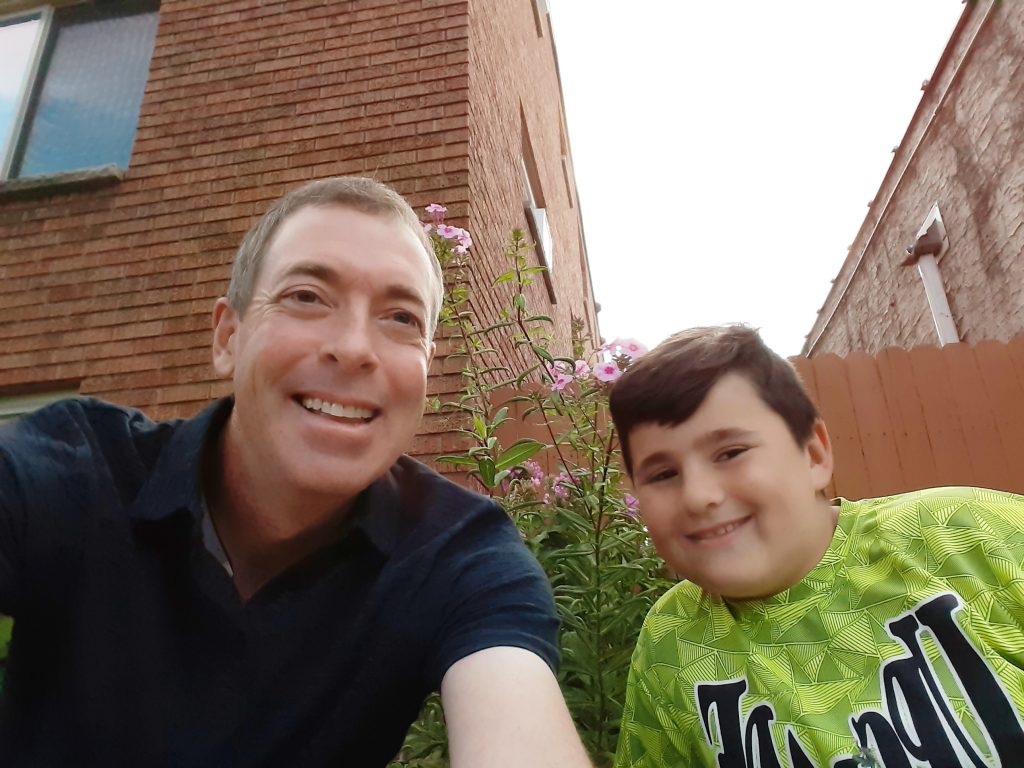Each year, JFCS volunteers dedicate countless hours to doing things for others. Some provide companionship and transportation for senior citizens. Others shop for, wrap, and deliver holiday gifts, food, and ritual items to isolated individuals and families in need; or create and advocate for inclusive communities for marginalized groups. No matter what form it takes, the service of JFCS volunteers allows us to fulfill our mission of providing essential services to people of all ages and backgrounds to sustain healthy relationships, ease suffering and offer support in times of need. There is perhaps no better example of this than the work of the volunteers in our Jewish Youth Mentoring Program.
We are living in a time when action to secure the safety and justice of our people — the Jewish community — is critically needed. An October 2019 survey of American Jews revealed that nearly a third of respondents avoid “publicly wearing, carrying, or displaying things that might help people identify” them as Jewish, for fear of persecution. In light of this rising anti-Semitism, global Jewish advocacy group AJC designated Jan. 6 as #JewishandProud Day to promote pride in our Jewish identities.

One of JFCS’ Jewish Youth Mentoring Program matches.
In his 2013 article, “The Case for Jewish Mentorship,” Brad Sugar describes an experiment in which he instructed students in a Jewish cultural club to “draw a Jew.” He was dismayed by the stereotypical depictions they produced: men with black brimmed hats; doctors and lawyers, some with Stars of David necklaces, others with a bagel in hand. He reasons that “most of them fell back on stereotypes because there were no significant Jewish leaders in their lives other than immediate family. […T]hey had no true Jewish heroes. No immediate Jewish role models to emulate, to seek out, or to spend time with.” He added: “[T]o expect our Jewish youth to grow into participating Jewish adults, we need to provide them access to affable and knowledgeable Jewish role models and leaders they can trust.”
The Jewish Youth Mentoring Program does just that. Our volunteer mentors continue the work of #JewishandProud Day year-round by not only celebrating Jewish identities, but by helping youth develop and strengthen their own Jewish identities. They are the “affable and knowledgeable Jewish role models” that Sugar calls for. Mentors bond with youth over their shared Jewish identity, and foster pride in this identity by serving as advisers, cheerleaders, and most importantly, friends.
Sometimes matches celebrate Jewish holidays together, or attend cultural events at the local JCCs. More commonly, though, they can be found visiting libraries or bookstores; doing arts and crafts; baking; exploring local parks; playing sports; going to museums; playing board games; or attending performances or sporting events. These activities are tailored to individual interests and abilities, and tend to evolve as the mentoring relationship develops. This simple relationship with a positive Jewish figure outside of the youth’s immediate family equips the youth with the necessary tools and support to develop their own positive Jewish identity.
As Sugar points out, it takes all kinds of Jews to meet the mentoring needs of our youth: “Men and women. Religious and secular. Gay and straight. Jewish professionals and professional Jews. Young and old.” This MLK Day, this National Mentoring Month, we urge you to answer Dr. King’s call to “make a career of humanity” by volunteering as a mentor. We echo him in asserting that by doing so, “You will make a greater person of yourself, a greater nation of your country, and a finer world to live in.”
Click here for more information on the Jewish Youth Mentoring Program, or call 952-546-0616.


